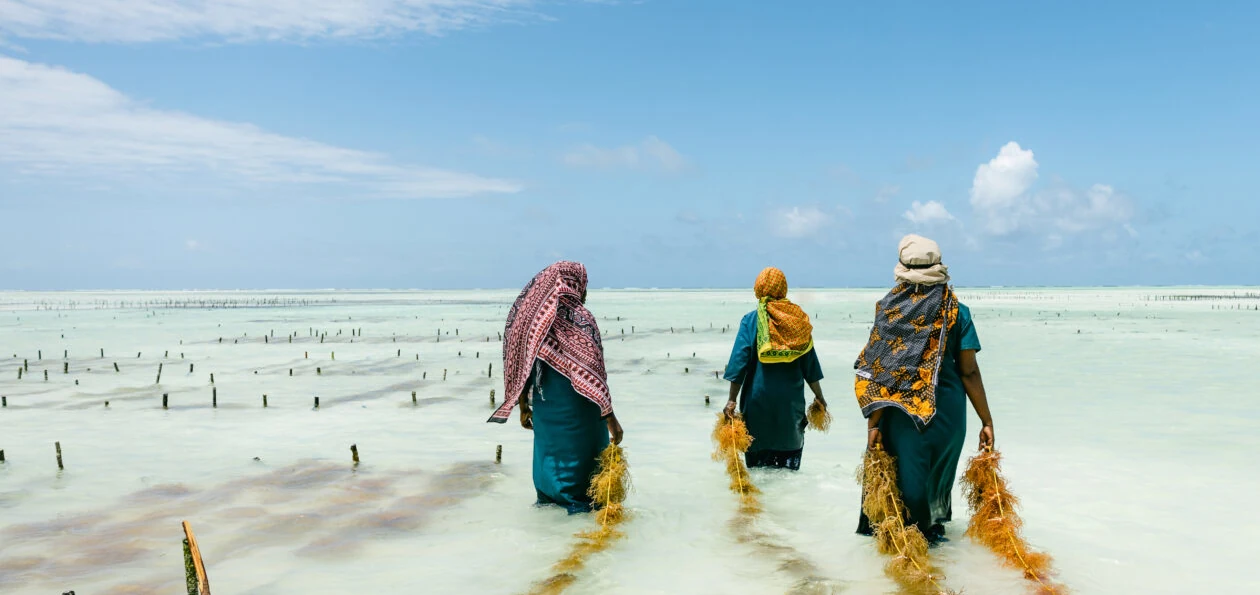
Date:
Mar 20, 2025
Author:
Cade Adams
Position:
CTO
The Western Indian Ocean (WIO) region faces an economic dilemma: a heavy dependence on foreign tourism, which, while lucrative, is fragile in the face of global disruptions. The COVID-19 pandemic starkly illustrated this vulnerability, leaving thousands without income as tourism collapsed. A sustainable alternative must be built to foster local economic resilience while ensuring ecological sustainability.
The WioAlgae Integrated Multi-Trophic Aquaculture (IMTA) Franchise offers a transformative model by leveraging the region’s Marine Protected Areas (MPAs) for ecosystem services, seaweed farming, and sustainable aquaculture. This model not only enhances coastal biodiversity but also provides a viable pathway for economic independence among local communities.
By adopting a no-feed IMTA system, WioAlgae ensures that farming seaweed, shellfish, and other marine species works in harmony with nature, creating an ecosystem-based economy that benefits both people and the environment. This system supports female seaweed farmers, artisanal unemployed fishermen, and youth entrepreneurs, offering them a sustainable livelihood that does not rely on foreign visitors.
Many WIO nations carry high external debt burdens, often tied to foreign investment in infrastructure and tourism. The Nature-for-Debt Swap model provides a compelling way forward: governments can negotiate to reduce their external debt by committing to marine conservation and sustainable aquaculture investments through the WioAlgae IMTA Franchise.
The key economic advantages of leveraging WioAlgae IMTA for a Nature-for-Debt swap include:
Debt Relief & Fiscal Stability – By converting debt into conservation and sustainable development funding, countries gain financial flexibility to reinvest in local economies.
Job Creation – Scaling up seaweed farming, sustainable fisheries, and seaweed-based bioproduct industries creates employment, especially for women and youth.
Foreign Exchange Earnings – The export potential of high-quality seaweed biostimulants, bio-packaging materials, and other value-added products reduces reliance on foreign tourism while generating sustainable revenue.
Climate Resilience & Food Security – Restoring MPAs and fostering IMTA-based marine farms enhances ecosystem resilience against climate change, ensuring coastal food security.
Women have historically led seaweed farming in East Africa, but they remain underpaid and lack access to markets. The WioAlgae Franchise integrates female farmers into the value chain by ensuring fair pricing, standardized quality control, and access to better processing facilities. This transition from raw exports to value-added products like seaweed-based fertilizers and cosmetics increases income potential and economic stability.
With declining fish stocks and restrictive MPA policies limiting traditional fishing, thousands of fishermen face unemployment. The IMTA model offers an alternative—instead of overfishing, they can engage in sea cucumber, mussel, and oyster farming, directly benefiting from MPA ecosystem services.
The WioAlgae IMTA Franchise is also a business incubation model—empowering youth with training, access to capital, and market linkages. This initiative fosters local innovation, allowing young entrepreneurs to develop seaweed-based food products, bio-packaging materials, and marine biotech startups.
While tourism has been a vital revenue stream, the WIO region’s overreliance on it poses economic risks. Shifting towards a marine-based bioeconomy, driven by WioAlgae’s IMTA Franchise, presents a resilient alternative—one that ensures long-term prosperity without sacrificing environmental integrity.
Governments in the WIO region must act swiftly to implement Nature-for-Debt swaps and support the expansion of the WioAlgae Franchise ecosystem. The benefits are clear: debt relief, job creation, sustainable growth, and climate resilience. By investing in this model, nations can turn their natural marine assets into economic engines—ensuring a prosperous and self-sufficient future for their people.